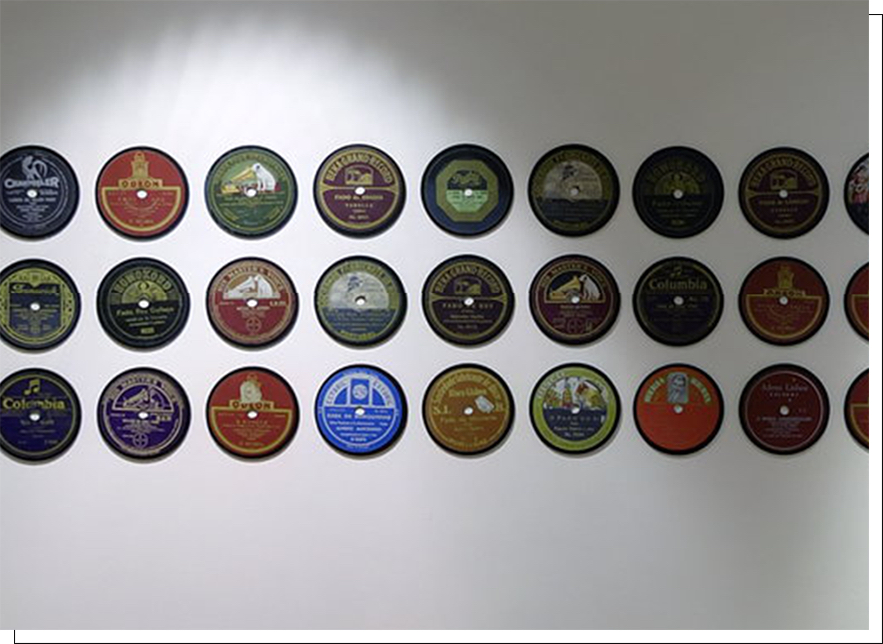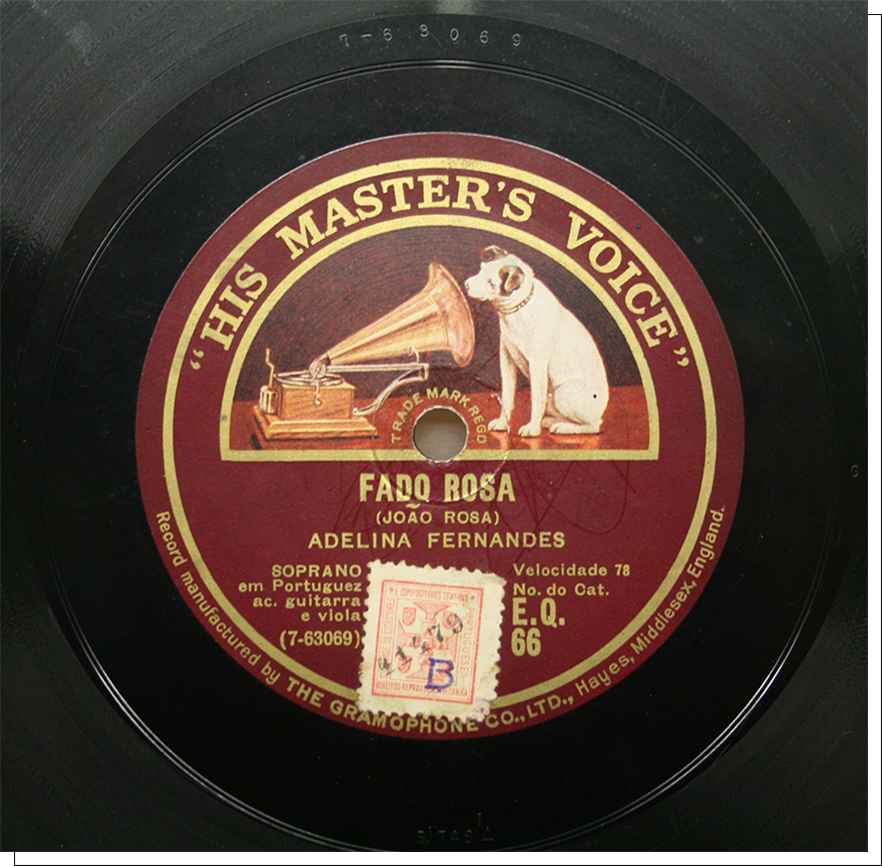About the Digital Sound Archive
This integral access online Digital Sound Archive is indeed an historical turning point. This is the first phonogram collection available online from one of the major phonogram collection existing in Portugal.
As one of the strategic axes of the Safeguarding Plan of the application of Fado to the Representative List of the Intangible Cultural Heritage of Humanity (UNESCO), this Digital Sound Archive from the Fado Museum offers online recordings of Fados recorded since the beginning of the 20th century.

Developed in partnership with the Fado Museum (Câmara Municipal de Lisboa – EGEAC) and Instituto de Etnomusicologia (Faculdade de Ciências Sociais e Humanas - Universidade Nova de Lisboa), this Digital Sound Archive currently encompasses thousands of Fado recordings from the beginning of the 20th century, and is the number one historical sound archive in Portugal.
The Archive’s database is located in theFado Museum’s site and allows the remote research of thousands sound recordings from the beginning of the 20th century until the beginning of electric recordings, offering an easy research by interpreter and repertoire.
"The Digital Sound Archive of the Fado Museum provides online sound recordings of fados recorded since the beginning of the 20th century."
Recorded in Lisbon, Oporto, Paris, Berlin or Rio de Janeiro - either acoustically or electrically (after 1927) - these records were traded in Portugal between 1900 and 1950.

Step by step this Digital Sound Archive will also include recordings from different public and private collections that were inventoried within the framework of the application of Fado to the Representative List of the Intangible Cultural Heritage of Humanity (UNESCO). This systematic identification of the relevant collection for the study of Fado belonging to various institutions carried out by the Fado Museum and by Instituto de Etnomusicologia have identified over 30,000 Fado repertoires.
Fado Museum in partnership with the Instituto de Etnomusicologia relies upon various types of media: 78 rpm shellac records, vinyl records (33 rpm and 45 rpm), instantaneous records (acetate), transcription records, non-typified records (different speeds and dimensions), digital media (CD, DVD-audio, SACD, DAT, mini-disc, etc.), magnetic tape (all types of dimension and speed) cassettes (normal or micro-cassettes), videos (VHS, U-matic, Betamax, 8, DV, mini-DV), among others.
Apart from the specimens archiving, Fado Museum and INET are also developing research projects on sound archiving (metadata, digital processing, media transfer, migration, restoring, databases), and on recorded sound, particularly the ones recorded on historical media that require a multidisciplinary research team with different backgrounds – history, anthropology, ethnomusicology and acoustics.
